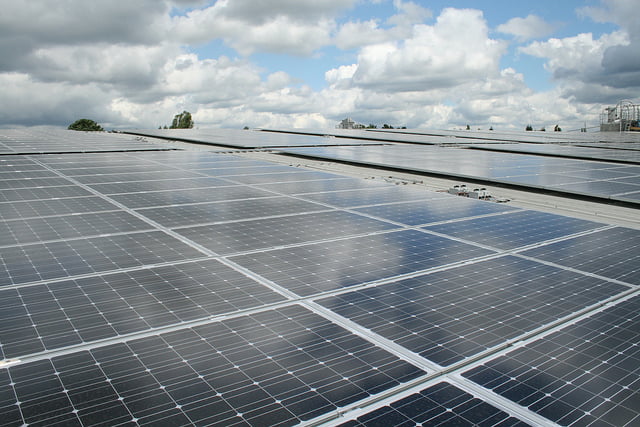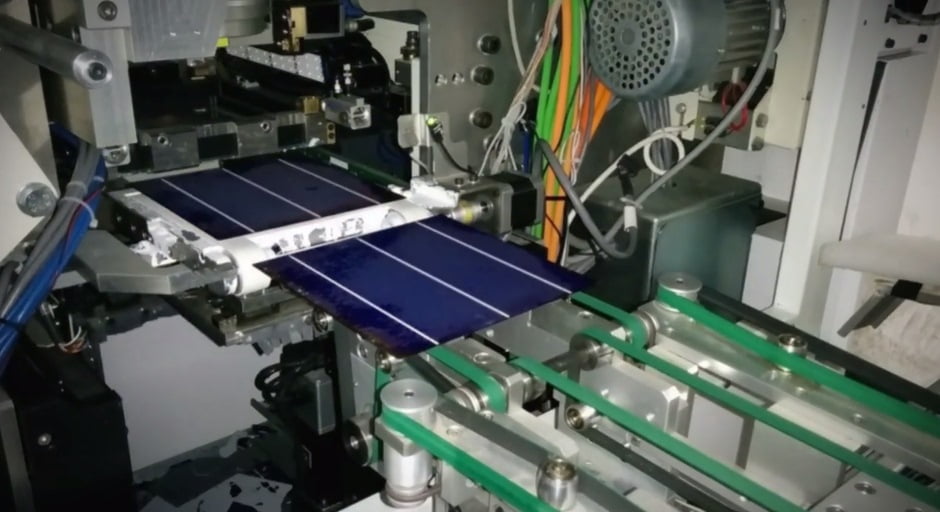Solar power is rapidly gaining momentum as the world’s alternative source of energy, with a slew of new technologies aimed at harnessing the sun’s powerful rays. In search of non-polluting alternatives and cost-effective methods of capturing solar energy, scientists and companies alike are turning to technology to find a compatible solution.
And one Israeli startup is at the forefront of harvesting sustainable energy. Utilight, a Yavne-based startup founded in 2009, is using 3D printing methods to create solar cells at faster and cheaper manufacturing rates than conventional solar panels.
SEE ALSO: How Going Solar Can Earn You Some Extra Income
Utilight’s 3D printing method is particularly efficient for high-volume manufacturing of solar photovoltaic cells since the contact-free, laser-based printing process produces more solar cells, but uses the same or fewer materials as opposed to conventional printing methods, the company claims. “Striving towards a brighter future, our innovative technology aims to increase solar cell efficiency and reduce material use, reducing the cost per watt of solar electricity,” the company notes.
The innovative startup has developed a unique printing technology called “Pattern Transfer Printing” for high-volume manufacturing of photovoltaic solar cells, creating a cheaper way to apply a conducting metal layer to the cells. PTP, Utilight’s method of wafer-metallization, avoids excessive use of materials such as silver paste, and allows cells to generate more power. The good news for manufacturers is that this new technology simply requires one extra module at the plant, as Utilight‘s systems can be installed not only in new production lines, but also in existing manufacturing lines.
The system’s “implementation is designed for a quick and smooth assimilation within existing production lines, using the same metal pastes and production sequences and maintaining cell durability and bankability,” according to the company. Simply put, the production process yields more solar panels per minute that also last longer.
Annual savings of up to $1 million
Sign up for our free weekly newsletter
SubscribeThe process is expected to save traditional manufacturers up to $500,000 in silver paste and an additional $500,000 in annual efficiency for a standard voltage manufacturing line, according to the company. “While the cost of solar cells has been steadily declining, it still remains one of the main barriers for wider adoption,” according to a company statement. “Utilight’s printing technology can provide significant reduction in manufacturing costs.”
SEE ALSO: Vast Solar Roof Makes Israeli Knesset World’s Greenest Parliament
This promise is exactly why Utilight has captured the interest of top investors. In 2012, the company secured a $4.5 million funding round from Robert Bosch Venture Capital, I2BF Global Ventures and Waarde Capital.
Utilight – founded by CEO Dr. Giora Dishon, Amir Noy, Misha Matusovsky and Moshe Finarov – has also raised funds from a series of government grants, angel investors and from Israel’s Office of the Chief Scientist.
By significantly cutting the costs of solar cell production, Utilight may have earned its place in the sun.
Photos and video: Courtesy of Utilight
Related posts

Resilient And Nutritious New Plant-Based Milk Aims To Make A Splash

Chocolate From Cultivated Cocoa Comes Without Environmental Toll

Plastic Fantastic: Startup Takes PVC Back To Its Crude Oil Roots






Facebook comments